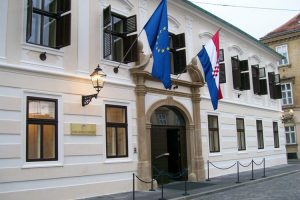By the end of this year Croatia will receive €490 million from the EU SURE instrument for temporary support to mitigate unemployment risks in an emergency following the outbreak of the coronavirus pandemic, the government said on Thursday, adding that a total of €1.02 billion has been approved for Croatia.

At today’s cabinet meeting, Finance Minister Zdravko Maric was authorised to sign a loan agreement with the EU for this temporary support.
The SURE instrument was established by decision of the Council of the EU in May with the aim of providing financial assistance of up to €100 billion in the form of loans from the EU to affected member states to address sudden increases in public expenditure for the preservation of employment.
To finance these loans, the European Commission will borrow money on financial markets and lend it to member states under favourable terms. The first tranche of €17 billion was conducted a few days ago, and the interest was ten times higher, Maric said.
“The instrument is designed for short work time schemes and similar measures to help member states protect jobs and employed and self-employed people from the risk of unemployment and loss of income. All member states have signed a guarantee agreement to date, whereby the SURE instrument has become operational,” Maric said.
He said that Croatia had applied for this funding to address sudden and serious increases in expenditures connected with subsidies to preserve jobs and support for shorter work time.
“A loan of €1.02 billion is available to Croatia, with a maximum average maturity of 15 years and an availability period for financial support of 18 months. Financial support can be used through a maximum of eight instalments which can be paid by one or more tranches. These are very favourable loans, and a total of €490 million will be paid to Croatia by the end of this year, which will be included in the budget revision and which is about 48% of the allocation,” Maric said.
The government also decided to include micro and small businesses in the state aid programme for the sea, transport and transport infrastructure sector to help them cope with the crisis caused by the coronavirus pandemic.